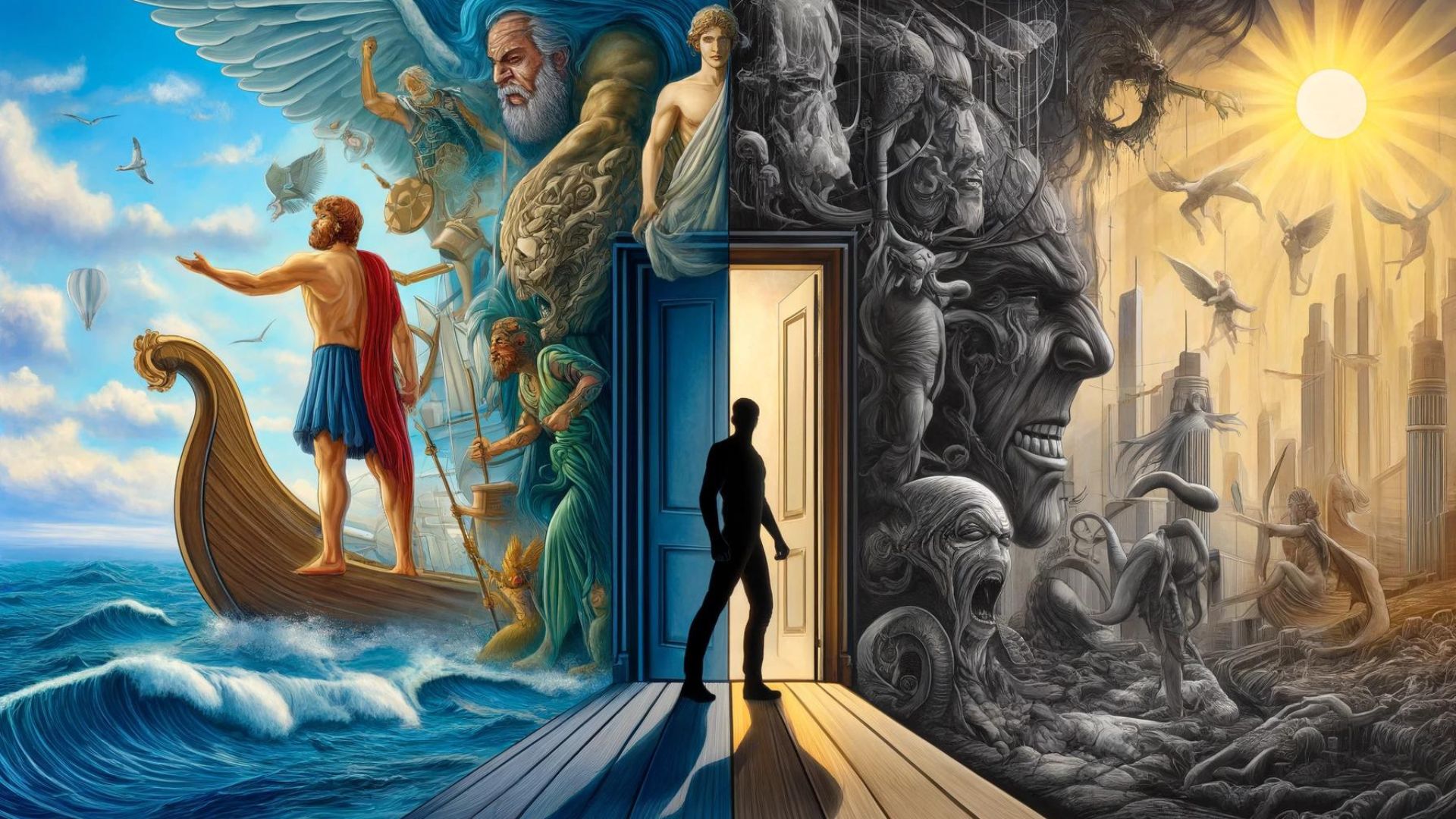Mighty Ulysses by Phoenix
Abandon your quest mighty Ulysses—
glorious fields of Elysium
still haven’t seen a bigger shoe;
you stood up to gods and monsters,
yet nothing more threatening than today
when everything urges you to move
far away from yourself;
you dared venture the realm of Erebus
such a mighty feat, but today
nothing is more glorious
than stepping outside your door,
every day, and when you come back,
you are still the same man.
There are no horrors like those you faced—
no sirens, no one-eyed monsters;
nothing wants to eat your flesh anymore,
but there is that shadow lurking outside your door
longing to eat your heart within.
Fear not mighty Ulysses; I will lead the way;
no one will turn your men to swine—
modern civilized men had it all figured out;
no need to turn you physically, anyway,
you can always be treated as one.
Come my dear Ulysses, come
don’t let your heart fail you yet;
your men perished for the cattle of the sun—
look around you today, anything you touch
must be sacred to someone,
and gods are changing every day.
Your Laestregonians are on the run—
what’s more than eating a man’s flesh
is eating up his hopes and dreams
to ever become a man—
Xenia of the modern world—
we take your children in;
we only teach one thing
you live as you are born;
take our river to the top,
or go live with all the rest,
drink from Lethe into oblivion.
You rise when we say you rise;
when we need a stepping stone, you fall.
Don’t lose heart, sweet mighty Ulysses—
there is one currency in our modern world
to win or lose the heart of man,
I’m not sure if you do understand;
go back to your world mighty Ulysses—
wars are waged and fought today
by much mightier heroes;
the battle of every day
to start the day a man
and finish the day a man.
Go back mighty Ulysses,
abandon your quest in our world—
our invisible monsters are hard to spot,
and a dedicated consumer like us, you are not.
Abandon your quest mighty Ulysses,
and leave it all to the modern man.
The Odyssey Continues: Analyzing “Mighty Ulysses”
Phoenix’s “Mighty Ulysses” offers a chilling twist on the legendary hero of Homer’s epic. This Ulysses, battle-worn and famed, is adrift in a modern world that seems both alien and horrifying. The poem explores the fading of heroism, the pressure to conform, and the lurking, insidious dangers of contemporary life.
The Loss of the Heroic Ideal
The poem contrasts Ulysses’ past glories (facing sirens, cyclops, and the gods themselves) with the seemingly mundane challenges of today. Yet, Phoenix subtly argues that modern obstacles are more insidious. While the threat of being physically devoured is gone, there’s the lingering dread of “a shadow lurking outside your door / longing to eat your heart within.” The heroism of fighting external monsters has yielded to the unending internal struggle to stay true to oneself.
The Pressures of Conformity
The poem depicts a society ruthlessly focused on consumption and conformity. People are “treated as swine,” their minds molded into obedience rather than turned into literal beasts as in the original Odyssey. Modern gods are ever-changing, demanding unwavering dedication to material goods that hold no real meaning. This world offers no true journey of self-discovery, only the promise of drowning in Lethe, the river of forgetfulness.
The Hero’s Choice in the Modern World
“Mighty Ulysses” suggests that the true heroic struggle now lies in the everyday. It’s about staying true to oneself in a world that systematically erases individuality. The poem is both a lament for what has been lost and a challenge: Ulysses is repeatedly urged to “abandon your quest in our world.” However, the repetition of this phrase hints at the possibility of resistance, of choosing a personal quest over succumbing to the invisible monsters of consumerism and conformity.
The Takeaway
Phoenix’s “Mighty Ulysses” is a powerful and unsettling poem. Its juxtaposition of ancient myth and modern anxieties forces us to question what it means to be a hero today. Is heroism a thing of the past, or is it found in the quiet defiance of daily existence, in the fight to retain our humanity in a world that seems intent on stripping it away?











0 Comments